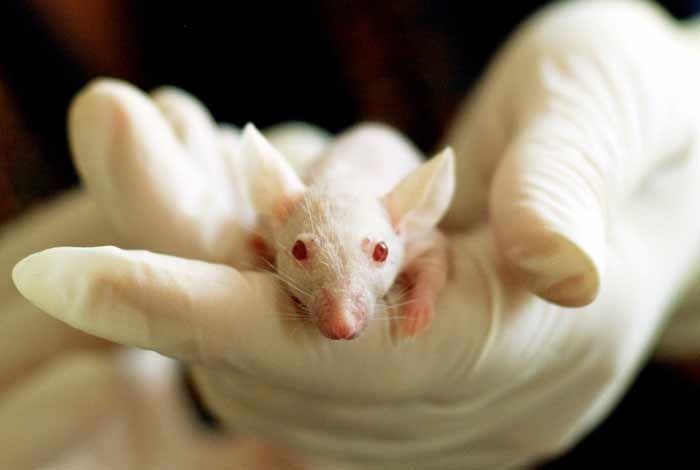
Researchers have recently discovered the secret weapon of stomach viruses and that why these spread so fast. The findings can help treat and even prevent these notorious viruses rather more effectively.
A recent research, published in Cell Host & Microbe, has revealed that stomach viruses, like norovirus and rotavirus, are way more contagious and even more potent when these get clustered.[1]
The research was initiated in the year 2015, when these scientists were studying polioviruses for some different project. This research was led by Dr. Nihal Altan-Bonnet from the National Heart, Lung and Blood Institute.[2]
The research team particularly looked at the vesicles – groups of viruses that get clumped together under the protective membranes; unlike the free-ranging viruses. The researchers were more interested in finding out whether there was any difference as in how clustered and standalone viruses attack the body.
Before this breakthrough research, scientists believed that the individual particles of a virus can spread illnesses rather more effectively. It all seemed to be just basic arithmetic. Suppose, if you have 2000 virus particles, you will have 2000 chances that your cells will become get infected. But, if you have merely 20 clusters of viruses, they will have only 20 chances to attack your body cells. Ain’t this seemed to be true?
But sadly, that’s not the case! Back in the year 2015, these scientists discovered that viral clusters were very effective at attacking human cells. These results were derived from several lab experiments. So, is this holds true in our real life?
According to the research, it is pretty much possible. There is significant strength in the numbers. These virus particles cluster together and become a kind of organism, which then bombards our body tissues with an overwhelming illness.
What Did The Researchers Say About This Research?
Altan-Bonnet explains that these virus particles clusters infect intestinal cell with a high number of viruses simultaneously. She further states that many viruses go inside a same cell simultaneously.
She associates the virus clusters to a Trojan horse virus and she explains that these viruses enter your body cell as single unit, and once they are inside the cell, they can attack effectively. These stomach viruses then cooperate and make up for each other’s inabilities, according to Altan-Bonnet.
Stomach viruses are more contagious when they are in clusters and often lead to more severe infections than what freestanding stomach viruses can cause. The piglets and mice in the laboratory experiments were found to be more sick and even stayed sick for longer when exposed to the virus clusters rather than individual stomach viruses.
This research also indicated that the protective membrane that surround these viral clusters might also make them pass easily unnoticed by our immune systems; thereby, making them much more difficult to get rid of.
Altan-Bonnet said that these stomach viruses somehow remained in stealth mode.
Robert Legare Atmar, a doctor and professor at the Baylor College of Medicine, asserted that the study results are remarkably significant, and the results have enhanced our knowledge of how these viral enteric pathogens gets transmitted and cause infections.
Although Atmar has not been not associated with the research, he still opined that that the study has helped others understand the mechanisms of rotavirus and norovirus transmission in a much better way. He further added that this understanding might help the scientific community in designing strategies and better interventions to interrupt their transmission.
Further research would be however focused to understand how these virus clusters are transmitted within our bodies and how do these clusters operate. It is important to give attention to develop certain antivirals that could prevent the very formation of these clusters in the first place.
Each year, stomach viruses affect millions around the globe. From aircrafts to the countryside, outbreaks of these notorious norovirus and rotavirus can lead to serious and difficult-to-cure stomach diseases.
We get these intimidating stomach infections by a process, known as “fecal-oral route” and it is as gross as it appears. Basically, this occurs when you ingest poop accidentally by consuming tainted water or chewing your fingernails after you touched an infected surface, for instance.
Generally, this illness may cause diarrhea, upset stomach and stomach pain, but certain people, particularly children and older adults might even die due to these viruses.
Talking about immunization, a vaccine for rotavirus exists, but it apparently works only if it is administered before an infant is 15 weeks. This makes it really difficult to administer in several areas of the world. Norovirus, unfortunately, neither has a specific drug for treatment nor a vaccine.

How This Research Will Help Prevent and Treat Stomach Viruses
The researchers paid attention to these viruses partly because these are rather difficult to treat and many people, who get infected with them, are not able to work. Altan-Bonnet showed his concern over the economic costs involved as these stomach viruses impact so severely.
But, let’s learn about the good news amid all these findings.The researchers believe that their work would help other scientists to develop treatments that can target these virus clusters, rather than targeting individual stomach viruses. This may provide a breakthrough treatment in dealing with these stomach illnesses.
Altan-Bonnet explained that this research would help in the development of various types of antiviral drugs that can target these clusters differently, including targeting the membranes.
Medications that can easily penetrate through this protective shell around the viral clusters can help get rid of them easily and quickly.
There are a few more surprising ways as to how this research can help humanity. Viruses like polio are now being used to particularly target brain tumors. The initial research has begun by testing its efficacy in humans. The researchers might successfully use polio clusters to attack the tumors more effectively.
Well in this case, understanding how to make these viruses more potent would also be a great achievement.

The researchers at NIH also want to know whether several other virus clusters are similarly powerful or not. Previously, it was known that rhinoviruses, or what is known to cause common col, can be very powerful when they cluster together. The researchers will next examine the droplets from coughs and sneezes to check whether flu and colds can be easily transmitted through viral clusters.
Altan-Bonnet predicts that this might be true in case of rhinoviruses.










